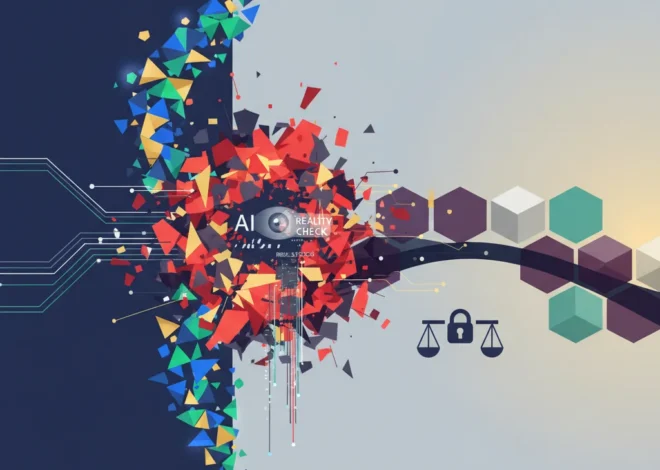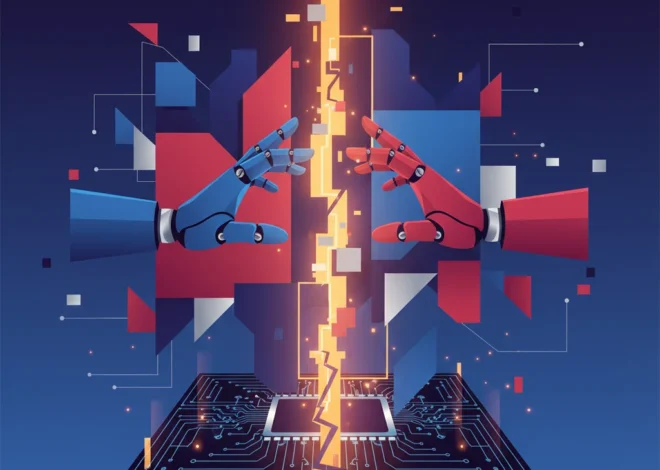
Your Wallet, Now Powered by ChatGPT: Inside the Landmark OpenAI and Intuit Deal
Picture this: Instead of staring at confusing spreadsheets or navigating clunky menus to manage your finances, you simply ask a question in plain English. “Can I afford a vacation to Italy next year, and what’s the smartest way to save for it?” In seconds, you get a personalized, data-driven plan based on your unique financial situation. This isn’t a scene from a sci-fi movie; it’s the future that Intuit, the parent company of TurboTax, Credit Karma, and QuickBooks, is building with its groundbreaking new partnership with OpenAI.
In a move that’s sending ripples through both the tech and finance industries, Intuit has struck a major deal to integrate OpenAI’s powerful generative AI technology into its suite of products. According to the Financial Times, the software giant will be paying the AI startup to leverage its advanced models, effectively plugging one of the world’s most sophisticated AI brains into the financial data of millions of users. This isn’t just another software update; it’s a fundamental shift in how we interact with our own money, heralding a new era of hyper-personalized financial management.
But what does this mean for you, for developers, and for the future of the entire SaaS industry? Let’s dive deep into the technology, the immense promise, and the critical challenges of this landmark collaboration.
The Deal Deconstructed: When Fintech Giants Meet AI Pioneers
At its core, this partnership is a powerful fusion of data and intelligence. On one side, you have Intuit, a titan in the financial software space. The company’s products are deeply embedded in the financial lives of over 100 million customers worldwide. They hold a vast, invaluable repository of financial data—from tax records and credit scores to daily spending habits and small business invoicing.
On the other side is OpenAI, the undisputed leader in the generative AI revolution. Their models, like the one powering ChatGPT, have demonstrated an incredible ability to understand and generate human-like text, making complex information accessible through simple conversation.
The deal is straightforward: Intuit will pay to use OpenAI’s technology. But the implementation is far more nuanced than simply feeding your TurboTax data into the public version of ChatGPT. Intuit is building a proprietary, domain-specific financial large language model, which they call GenOS (Generative Operating System). This platform will leverage OpenAI’s models as a foundational layer, but it will be fine-tuned and controlled within Intuit’s secure cloud infrastructure. This approach allows them to combine the conversational power of OpenAI’s artificial intelligence with their own decades of financial expertise and, most importantly, their customers’ data—all while maintaining strict security protocols.
AI vs. a £7 Million Ad: The Christmas Commercial That Changed Marketing Forever
Beyond the Hype: How Will This Actually Work?
The immediate concern for many is data privacy. The idea of “plugging personal financial data into ChatGPT” sounds alarming. However, the reality of the software architecture is far more sophisticated and secure.
Intuit is not sending your raw, identifiable data to OpenAI’s servers. Instead, they are using OpenAI’s enterprise-grade APIs. This is a crucial distinction. The enterprise API has far stricter data privacy policies; for instance, OpenAI does not use data submitted via its API to train its models. The process will likely look something like this:
- User Prompt: You ask a question within the TurboTax or Credit Karma app, like “Find all tax-deductible business expenses for my freelance work this year.”
- Internal Processing: Intuit’s GenOS platform receives the prompt. It uses its own proprietary algorithms and machine learning models to securely access your financial data within its own protected ecosystem.
- AI-Powered Synthesis: GenOS then uses a technique likely similar to Retrieval-Augmented Generation (RAG). It provides the anonymized, relevant financial data and the user’s question as context to the OpenAI model via the secure API.
- Natural Language Generation: The OpenAI model processes this information and generates a human-readable answer, which is sent back to Intuit’s platform.
- Final Output: Intuit’s system presents the answer to you, potentially with links to the relevant transactions or documents within your account.
This intricate dance of programming and secure data handling ensures that the power of generative AI is harnessed without compromising user privacy. It’s a prime example of the innovation happening at the intersection of SaaS, AI, and finance.
The Promise vs. The Peril: A New Frontier for Personal Finance
The potential upside of this integration is enormous, promising a future of financial empowerment and automation. However, this power comes with significant responsibilities and risks.
To understand the shift, let’s compare the traditional approach with the new AI-powered paradigm:
| Feature | Traditional Financial Software | AI-Powered Financial Assistant |
|---|---|---|
| User Interaction | Navigating menus, filling out forms, running reports. | Conversational queries, asking questions in natural language. |
| Data Analysis | Presents historical data in charts and tables for user interpretation. | Proactively identifies trends, anomalies, and opportunities in real-time. |
| Financial Advice | Generic tips, rule-based alerts (e.g., “low balance”). | Hyper-personalized, context-aware recommendations (e.g., “Based on your spending, you can increase your 401k contribution by $50/month without impacting your lifestyle.”). |
| Task Automation | Requires manual setup of rules and categories. | Intelligently categorizes transactions, prepares draft budgets, and identifies tax deductions automatically. |
While the “Promise” column is incredibly exciting, the “Peril” column is equally sobering. The primary concerns fall into three major categories:
- Cybersecurity: Centralizing so much sensitive financial data and connecting it to an AI system creates a high-value target for malicious actors. A breach could be devastating. Intuit will need to invest heavily in state-of-the-art security measures to protect this new ecosystem.
- Accuracy and Liability: What happens if the AI “hallucinates” and gives dangerously incorrect financial advice? If a user makes a poor investment or a critical tax error based on the AI’s suggestion, who is liable? Establishing clear guardrails and fail-safes will be paramount.
- Data Privacy and Ethics: Users will need clear, transparent control over how their data is used. There are also risks of inherent biases in machine learning models, which could lead to inequitable financial advice for certain demographics.
The EU's New Intelligence Hub: A Big Data Challenge or a Cybersecurity Nightmare?
The Ripple Effect: What This Means for the Broader Tech Landscape
The Intuit-OpenAI deal is more than just a headline; it’s a bellwether for the entire tech industry, especially for startups, developers, and SaaS companies.
For Developers and Tech Professionals:
The future is in building intelligent layers on top of existing platforms. Expertise in API integration, secure cloud architecture, and applied machine learning is no longer a niche skill—it’s becoming a core competency. Understanding how to work with large language models while ensuring data privacy and factual accuracy is the new frontier of programming and software engineering.
For Entrepreneurs and Startups:
This move validates the “AI-as-a-service” model. It demonstrates that even trillion-dollar companies are choosing to partner for best-in-class AI rather than building everything from scratch. This creates massive opportunities for startups to build specialized AI tools that can be integrated into larger enterprise ecosystems. The focus will shift from building foundational models to creating unique, valuable applications on top of them.
For the SaaS Industry:
The age of the static, feature-based SaaS platform is ending. The future belongs to dynamic, intelligent systems that provide proactive, personalized value. This deal signals a market-wide shift towards embedding generative AI at the core of software products. Companies that fail to adapt and incorporate this level of intelligence risk being left behind, becoming the digital equivalent of a horse and buggy in the age of the automobile.
Conclusion: The Dawn of the AI-Powered Wallet
The collaboration between Intuit and OpenAI is a watershed moment. It represents one of the most significant integrations of advanced artificial intelligence into the daily financial lives of millions of people. The journey ahead is fraught with challenges, from ensuring ironclad cybersecurity to navigating the complex ethical landscape of AI-driven advice.
However, the potential for positive transformation is undeniable. We are on the cusp of an era where financial management becomes less of a chore and more of a conversation—a seamless, intelligent, and truly personalized experience. This deal is a bold step into that future, and the entire world of technology and finance will be watching closely to see what happens next.


